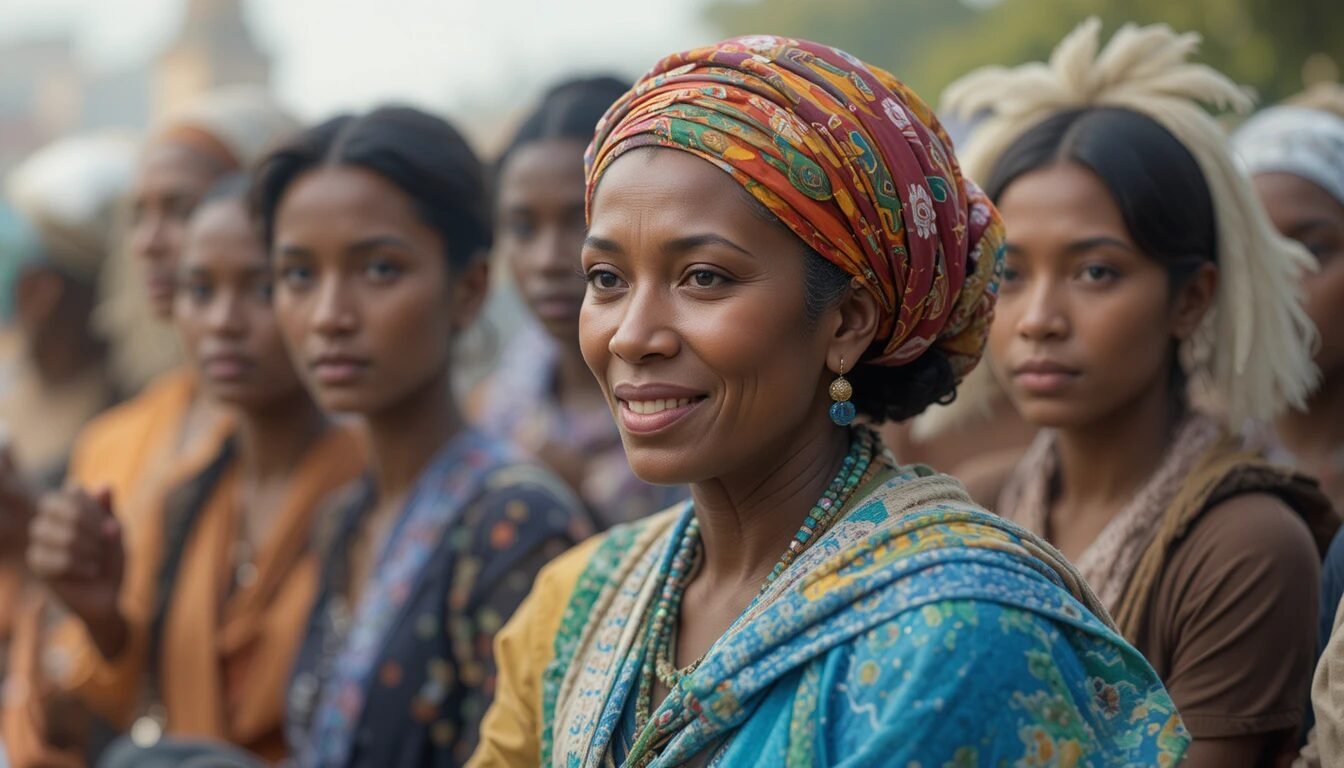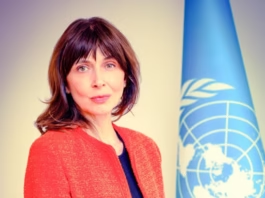The Rise of the Women, Peace, and Security Agenda
The Women, Peace, and Security (WPS) agenda emerged in response to the recognition that women’s participation is crucial for sustainable peace and security. The journey began with the adoption of United Nations Security Council Resolution 1325 in October 2000, a historic milestone in acknowledging the roles of women in conflict situations. This resolution underscored the imperative of integrating a gender perspective into all aspects of peace and security and called for women’s increased participation in decision-making processes related to conflict resolution and peace-building.
Resolution 1325 was built upon the understanding that women experience the impacts of conflict differently than men, often facing gender-based violence and unique threats during wartime. The resolution outlined specific commitments, including the protection of women and girls in conflict, the promotion of their participation in peace negotiations, and the need for gender-sensitive training for peacekeeping personnel. These initial commitments sparked hopes for transformative change in how conflicts are addressed, and the recognition of women as vital stakeholders in peace processes.
Over the years, the WPS agenda has evolved, giving rise to subsequent resolutions that further articulated the need for women’s empowerment in the realm of peace and security. Subsequent resolutions built on the foundation laid by 1325, addressing various dimensions, including the prevention of sexual violence in conflict, with the aim of holding perpetrators accountable and fostering a culture of respect for women’s rights. Expectations surrounding the WPS agenda were high, as it represented a paradigm shift towards more inclusive approaches in international relations and conflict intervention strategies. As we evaluate the impact of this agenda today, it is essential to reflect on both the achievements and the ongoing challenges faced in realizing its vision of gender equality in peace and security efforts.
Current Reality: The Gap Between Commitment and Implementation
The Women, Peace, and Security (WPS) agenda, established to address the unique challenges faced by women in conflict situations, has seen significant commitments over the past 25 years. However, the on-ground realities often starkly contrast with these commitments. Women in various conflict zones continue to endure severe violence, systemic discrimination, and violations of their rights, which underscores a broad gap between policy and practice. The situation is particularly alarming in regions such as Gaza, Afghanistan, Sudan, Haiti, and Myanmar, where local women confront persistent threats to their safety and agency.
In Gaza, the ongoing conflict has exacerbated women’s vulnerabilities, leading to increased incidences of domestic violence and restrictions on their mobility. Reports from UN officials indicate that the social and economic impacts of warfare have severely limited women’s access to healthcare, education, and employment opportunities, thus perpetuating cycles of poverty and dependence. In Afghanistan, the return of the Taliban has marked a regression in women’s rights, with many educational and professional opportunities vanishing overnight. Women and girls now face dire restrictions that impair their participation in public life.
Sudan presents another stark example, where the recent political turmoil has created an environment rife with gender-based violence. Activists report an alarming surge in incidents affecting women, from sexual violence to forced displacement. Similarly, in Haiti, women are often caught in the crossfire of gang violence, resulting in gender-based atrocities that are both horrific and largely unaddressed. Myanmar’s coup has also resulted in women’s participation in peace processes being sidelined, thus losing the crucial voices that demand their rights and security.
These case studies reflect the grave situations women face within conflict zones, highlighting the urgent need for effective implementation of the commitments made under the WPS agenda. Without meaningful action and accountability, the gap between the promises made and the actual circumstances of women will only continue to widen.
Calls to Action: Proposals for a More Effective Agenda
The recent Security Council meeting highlighted several pressing calls to action aimed at enhancing the Women, Peace, and Security agenda. Participants underscored the necessity for establishing binding targets to ensure that commitments made toward gender equality and women’s empowerment are not only aspirational but actionable. Such binding commitments are vital for driving accountability among nations and organizations engaged in peace processes.
Another central theme was the need for a gender data revolution. Comprehensive and disaggregated data on women’s experiences in conflict zones is critical for understanding their unique challenges and contributions. This data is essential for informing policies and programs that effectively address issues women face during conflicts and in post-conflict environments. A robust gender data system can help provide insights into the intersectionality of factors affecting women and facilitate evidence-based decision-making.
In addition, there is a call for increased funding for women-led initiatives, which play a crucial role in promoting sustainable peace and security. These initiatives are often the backbone of community resilience and should receive prioritized support from both public and private sectors. Addressing the current funding gaps involves creating a comprehensive framework that directs resources towards empowering women as key stakeholders in peace and security efforts.
Contributors at the meeting emphasized that closing these funding gaps and improving data collection on women must be immediate priorities. The shared vision for elevating women’s voices in peace processes is not just a goal; it is a necessity for lasting peace and stability. Implementing these calls to action can significantly impact the way women engage in conflict resolution and recovery efforts, ensuring their perspectives and experiences are integral to the peace agenda.
A Polarized Debate: Divergent Views on the Way Forward
The ongoing dialogue surrounding Women, Peace, and Security (WPS) has unveiled a landscape marked by polarized views, particularly during the recent Security Council discussions. Central to this debate are Israel’s actions in conflict zones, defended by its allies, who argue that national security often necessitates difficult decisions. The United States, a prominent advocate for these actions, has consistently dismissed allegations of genocide in Gaza, framing them as politically motivated critiques rather than legitimate concerns. This stance has raised eyebrows among various member states, including Russia, which has decried the emphasis on quantitative quotas for women’s participation, arguing that such measures may lead to tokenism rather than substantive engagement.
Furthermore, the discourse has been enriched by Pakistan’s comments, which highlight the distinct challenges faced by Kashmiri women who remain marginalized in peace talks. The exclusion of their voices from broader discussions exemplifies the complexities of intersectionality within the WPS agenda. Advocates emphasize that addressing the unique struggles of women in conflict zones is not merely a matter of representation but a crucial element of sustaining long-term peace and security. The call for women’s involvement in peace negotiations transcends token representation; it necessitates a paradigm shift towards genuine participation and influence.
As the debate progresses, it becomes increasingly clear that divergent perspectives often impede consensus on critical issues. Nevertheless, this polarized discourse presents an opportunity for advocates of the WPS agenda to galvanize efforts towards a unified commitment. Achieving meaningful progress requires decisive actions and a collective resolve to address the underlying political challenges. Moving forward, it is essential to cultivate an environment where women’s rights and their voices are actively incorporated into all facets of peace and security discussions.




